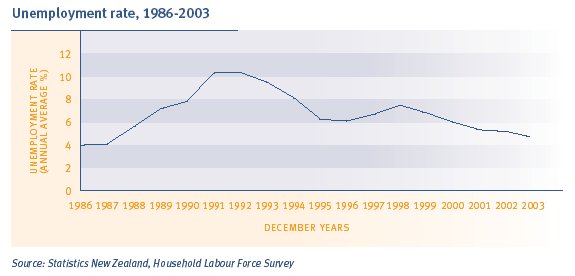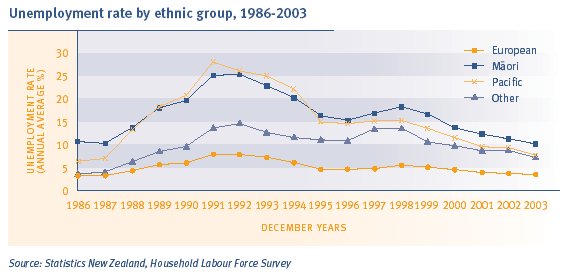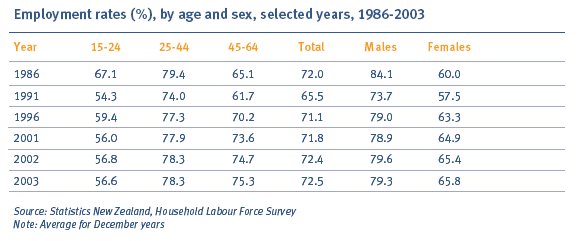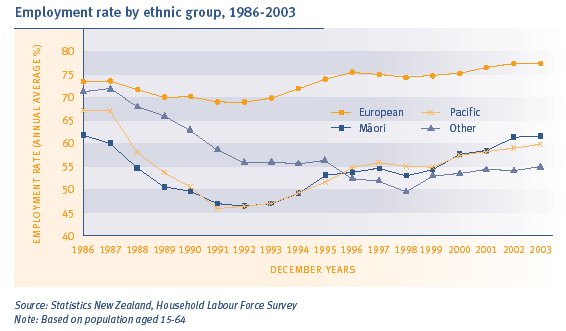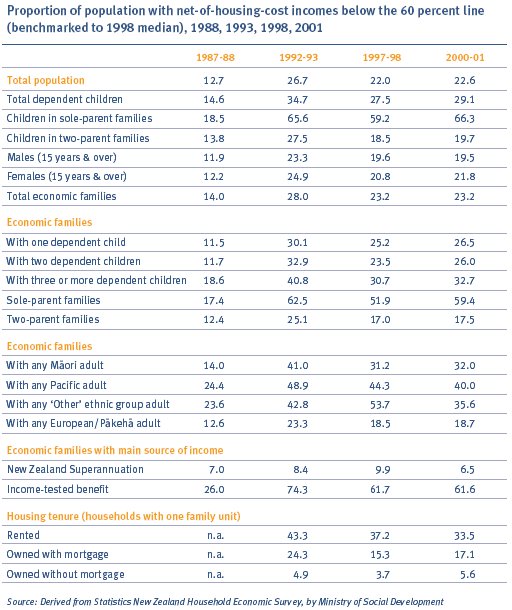No.213 9 September 2004
 BACK
BACK
|
VOICES ON SOCIAL REPORT 2004:
"This year's Social Report confirms the social well-being of all New Zealanders is improving." — Steve Maharey, Minister of Social Development "Booms are not necessarily good for the poorest. They're good for those who can get on the treadmill of the job market." — Susan St John, Child Poverty Action Group "It's all very well to have a strong economy but too many New Zealanders are being left out in the cold. While the Labour government has performed far better than their predecessors, it has failed to halt the deepening social divisions in New Zealand caused by income inequalities." — Sue Bradford, Green Party MP. "Maori social well-being has improved since the 1990s but it is a long way behind the non-Maori population in areas like health, paid work, standard of living, housing and retention of secondary school qualifications." — Sir Paul Reeves, former governor-general "Poor literacy rates and an average wage that lags behind that of our closest neighbour Australia provides real cause for concern." — Katherine Rich, National Party MP — Social Report 2004, published by the Ministry of Social Development, ISSN: 1175-9917. Download (PDF, 176pg, 2.12mb) from here.
Source - Social Report 2004; New Zealand Herald 17 August 2004 Cullen claims growth won't solve social ills; Media
release Steve Maharey 22 August 2004 "Social development matches economic development - Report"; Sunday Star Times 22
August 2004 "Not quite top of the class" by Amie Richardson and Emily Watts; New Zealand Herald 23 August 2004 "Varying views
on Govt's rating list" by NZPA.
|
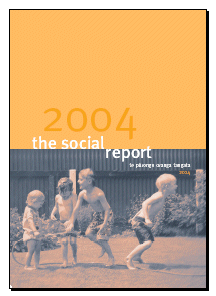 The Ministry of Social Development has released its annual
Social Report that assesses the overall well-being of New Zealanders and analyses how well this is distributed across age, ethnic
and gender groups. It also compares New Zealand social progress with other OECD nations. Some
employment related findings in Social Report
2004:
The Ministry of Social Development has released its annual
Social Report that assesses the overall well-being of New Zealanders and analyses how well this is distributed across age, ethnic
and gender groups. It also compares New Zealand social progress with other OECD nations. Some
employment related findings in Social Report
2004:
— the level of unemployment in New Zealand is now one of the lowest in the world. Still, unemployment among people aged 15-24 years has consistently been at least twice the rate of older age groups. In 2003, the unemployment rate for people 15-24 was 10.2% while it was just 2.8% for those people 45-64 years.
— a much greater percentage of Maori and Pacific peoples continue to be unemployed than European/Pakeha and significantly fewer Maori and Pacific people students leave with qualifications than do European/Pakeha students.
— New Zealand ranks a high eight out of 30 OECD nations in the overall percentage of working aged people who are employed.
— 2003 data indicates that while the level of disposable income New Zealanders have has steadily increased since 1992, their purchasing power has decreased in comparison to other OECD countries. In wealth per person, we have dropped to 21st out of 30 OECD countries.
— there has been no updated data on the "unofficial poverty line" since 2001.
